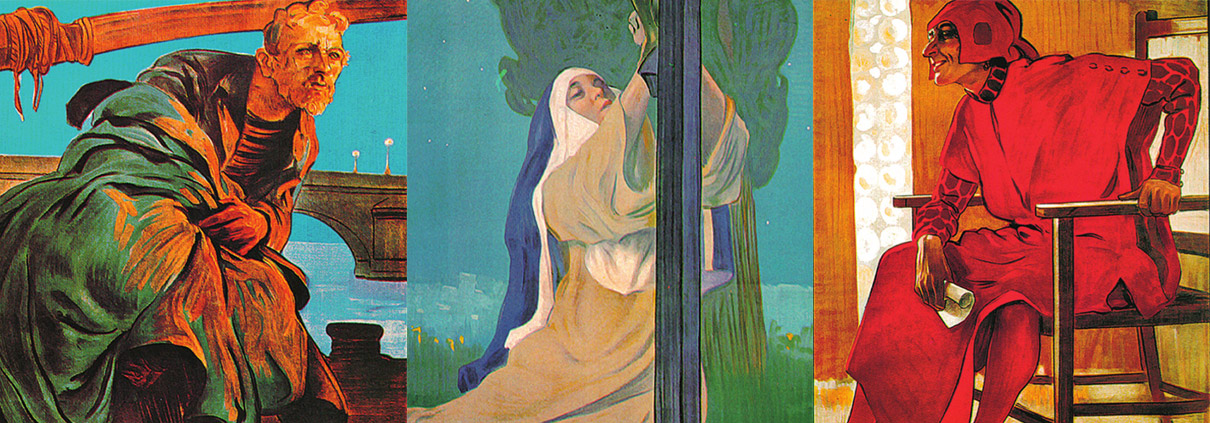The operatic genre of Verismo (end of the 19th century) is characterized by one-act operas, among which probably the most famous are Pietro Mascagni’s Cavalleria rusticana (1890) and Ruggero Leoncavallo’s Pagliacci (1892). Giacomo Puccini was no stranger to composing one-act operas. At the beginning of his career, after his years at the Milan Conservatory, he had performed the world premiere of Le Villi in 1884.
On 14 December 1918 Puccini’s Il trittico (The Triptych) premiered at the Metropolitan Opera. It is a set of three one-act operas, Il tabarro, Suor Angelica, and Gianni Schicchi, united by the theme of death and its effect on those left living. Each opera has a distinctive musical and linguistic language: the tragic and veristic Il tabarro, the mystical and reflective Suor Angelica, and a masterful tale of comic retribution, Gianni Schicchi. The Italian composer apparently planned to write each opera to reflect episodes of Dante’s Divine Comedy. However, he eventually based only Gianni Schicchi on Dante‘s epic poem (Inferno, Canto XXX).
Puccini intended that the three operas should be performed together and on more than one occasion he expressed his disappointment in knowing the three operas staged separately. “I very much dislike Trittico being given in bits…” he wrote one day to his friend Sybil Seligman. Today, it is quite common to see only one or two of the trittico operas performed in an evening, and sometimes one of them may be paired with another one-act opera by a different composer. After the first staging of Il trittico, most critics agreed that the third was the best of the three operas. Even today Gianni Schicchi remains the most popular of the three.


